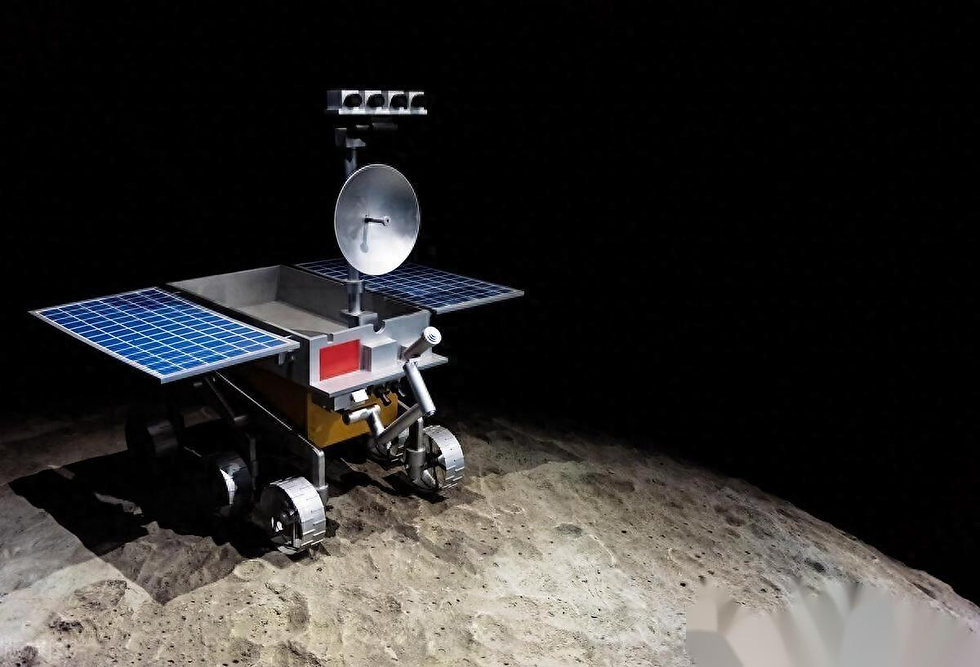The lunar soil weighs differently on Earth due to variations in mass and gravity.
- CosDream News

- Jun 30, 2024
- 3 min read
The mass and weight variations of lunar soil on Earth and the Moon have sparked profound impacts on soil research.
These soil changes in different environments have spurred new considerations for deep space exploration.
How exactly do these changes inspire us? Let's delve deeper!
Between Earth and the Moon, the quality of soil does not vary with location, but its weight is influenced by the gravitational acceleration of the respective planets.
On Earth, we can use various mechanical devices and physical principles to reduce soil mass loss.
However, on the Moon, with its gravity only about one-sixth of Earth's, controlling soil mass loss becomes challenging.
Additionally, the lunar vacuum environment also affects soil properties.
For example, 2 kilograms of lunar soil brought back to Earth may weigh less than 1 kilogram here, whereas 2 kilograms of Earth soil on the Moon could weigh significantly more.
How do these situations impact soil research?
For lunar soil samples brought back to Earth, there may be some effects, but measures can be taken to minimize mass loss, such as enhancing protective measures during return or using special aerospace materials to encapsulate soil samples.
While there will still be some mass loss, it won't compromise the scientific research value of the soil samples.
Conversely, lunar soil on Earth, as long as it's not lost, can have its mass loss controlled within certain limits.
Although research cannot be as precise as on Earth, we can take measures to recreate the real conditions on the Moon.
If we cannot remedy these changes in mass and weight, the research value of lunar soil on Earth will be greatly reduced, and the same applies to Earth soil taken to the Moon.
This viewpoint seems to imply that there is no need to visit the Moon at all, since even soil samples cannot be guaranteed accurate, what hope is there for more important research?
In fact, this idea is not tenable.
Despite changes in soil quality, the information contained therein is very rich.
From the perspective of human scientific exploration, the phenomenon of lunar soil becoming lighter on Earth provides valuable research opportunities for us, and the same applies to Earth soil taken to the Moon.
If we can conduct precise studies on these samples and gain valuable information from them, it will not only accumulate experience for our deep space exploration efforts but more importantly, it may bring unexpected gains.
For example, in exploring the patterns of soil mass change, we may discover traces of lunar life;
Or in studying the restoration process of Earth soil, we may draw conclusions that inspire the underground structure and system of the Moon.
In addition, there are many other aspects worthy of further exploration, such as the study of lunar life forms and possible treasures, etc.
These in-depth studies can not only help us understand the Moon itself but also provide important references for human exploration of the universe.
For example, the phenomenon of lunar soil becoming lighter on Earth allows us to speculate on broader mechanisms of celestial material exchange, which is of great significance for understanding the material flow within the solar system.
Furthermore, the study of lunar soil also helps us answer some fundamental scientific questions, such as the similarities and differences between Earth and the Moon.
These comparative studies help deepen our understanding of planetary formation and evolution processes, providing references for the future development of Earth and other celestial bodies.
Therefore, despite changes in soil mass and weight, for the process of human exploration of the universe and the Moon, this is a very important and far-reaching driving force.
Although soil may change on different planets, it is precisely these changes that bring us more possibilities for exploration.
Studying lunar soil not only helps us accumulate experience in deep space exploration but may also bring unexpected discoveries for humanity.
Let's keep our curiosity alive, continue our in-depth research, and perhaps there are more surprises waiting for us!









Comments